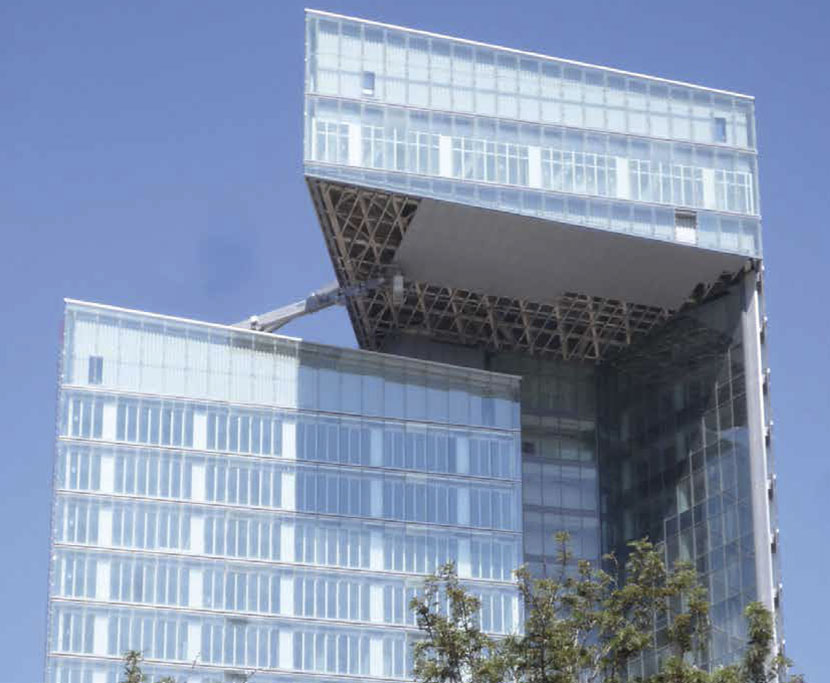Advanced Interlayer Solutions Division Projekte Morocco Telecom HQ
ADVANCED INTERLAYER SOLUTIONS


The façade construction used on the new building, designed by architects Jean Paul Viguier et Associés, Paris, comprises a double skin covering a total surface area of 11,500 m2 (123785 sq ft) The exterior of the skin is composed of vertical shoulders mounted on a stainless-steel structure, for wind mitigation, bearing a curtain-wall made of laminated glass panels. The laminate panels, each measuring 1,480 x
3,503 mm (4.86 by 11.5 ft), comprise 10 mm (3/8”) Ipasol bright tempered HST, 1.52 mm (60 mil) SentryGlas® and 10 mm (3/8”) float tempered HST.
By deploying laminate panels incorporating SentryGlas®, the architects were able to address a number of important structural and functional demands; one of which was the high daytime temperatures and the large night-time temperature differential. During the day, the frontage of the building can quite easily see temperatures up to 70 °C (158 °F); something which immediately precludes the use of PVB-based laminates, as they are only certified up to 64 °C (147,2 °F) by French building regulations. The superior thermal performance offered by SentryGlas® therefore made it an ideal candidate for this installation and, indeed, for others that face even higher temperatures, as SentryGlas® is up to 82 °C (179,6 °F).
Thanks to SentryGlas® being 100 times stiffer and five times stronger than PVB, the architects were also able to design and specify laminate panels some 30% thinner and, as a result, significantly lighter, than PVB-based alternatives.
With SentryGlas® there is an almost perfect transmission of load between two laminated sheets of glass – even at high temperatures – leading to excellent flexural behaviour when under load. As a result, laminates constructed with SentryGlas® show less than half the rate of deflection when compared to laminates incorporating PVB under the same load. Indeed, the deflection figure is very close to that exhibited by monolithic glass of the same thickness.
In this application, the deflection characteristics were also of particular importance due to the seismic activity experienced in the region. Should the worst happen, SentryGlas® laminates show excellent post-glass-breakage performance due to the strength of the interlayer. Upon impact, the glass may break, but dangerous fragments will adhere to the SentryGlas® interlayer, reducing the risk of injury to people in the vicinity.
Application
Region
Interlayer
Architect
Laminator

Keep up with the very latest news in laminated glass innovations and procedures by subscribing to our free Laminated Glass News.
Subscribe here